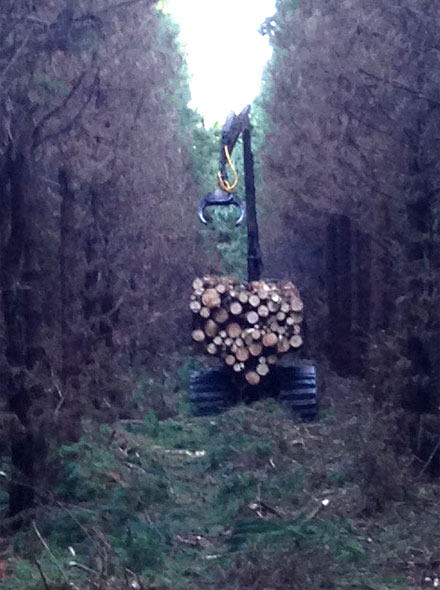
Environment Southland, New Zealand has expressed concern that forestry operators will be allowed to operate at lower environmental standards than others, under new government rules. Source: The Southland Times
A report to an Environment Southland meeting says a national environmental standard for plantation forestry was enacted in July and will come into force next May.
The national standard covers all activities relating to plantation forestry including earthworks, river crossings and mechanical land preparation.
Councils such as Environment Southland are not permitted to set rules more stringent than the national standards, except in limited circumstances, a report to Environment Southland councillors, written by senior policy planner Tanith Robb.
“The regulations are more lenient than many of the rules in the proposed Southland Water and Land Plan. “As such, forestry operators will be able to operate at lower environmental standards than other resource users in Southland,” Mr Robb said.
The national environmental standards for forestry were passed despite Environment Southland earlier expressing concerns they could undermine its ability to manage the environmental effects of plantation forestry in the region.
The national standards would allow small wetlands to be disturbed, including by building a river crossing over a wetland under .25 of a hectare – whereas under the proposed Southland Water and Land Plan it would be a non-complying activity.
Among other differences, the national standards also say mechanical land preparation must not occur within 5m of a river less than 3m wide, or a wetland larger than .25 hectare. Whereas, depending on the slope, the proposed Southland Water and Land Plan may have required a 20m setback and no mechanical cultivation on slopes greater than 20 degrees.
Land sustainability officers currently work with forestry operators to increase awareness about environmental effects, but the national standards eliminate the need for such conversations according to Mr Robb.
The national forestry regulations also limited Environment Southland’s ability to take compliance action against forestry operators when adverse effects were reported.
Environment Southland chairman Nicol Horrell said the national environment standard for plantation forestry appeared to give one sector a more lenient pathway.
“I am concerned about that.”
Mr Robb, speaking at the meeting, said the risks associated with forestry harvesting were significant in respect to sedimentation and erosion.
“Small wetlands and small streams can deteriorate which is something we were trying to mitigate in the [proposed] Southland Water and Land Plan,” he said.





